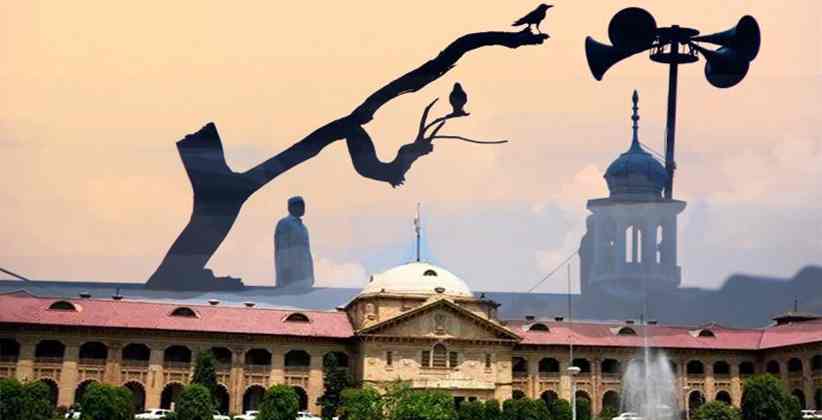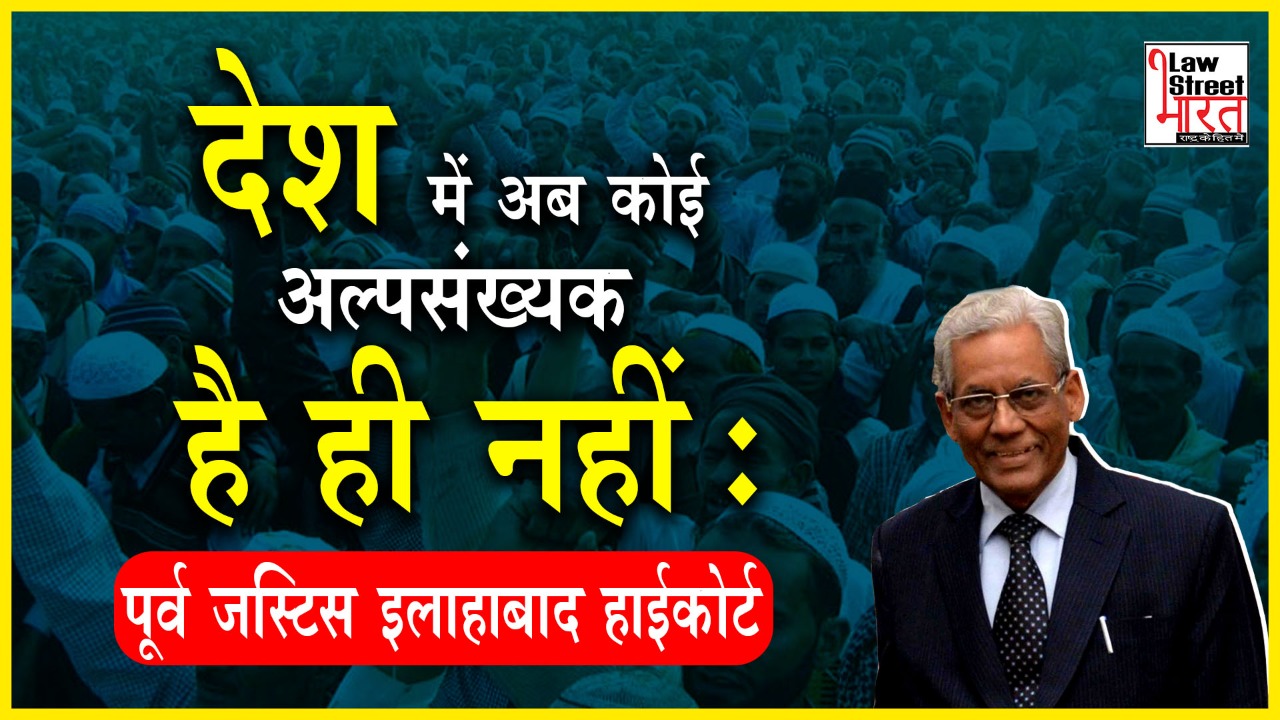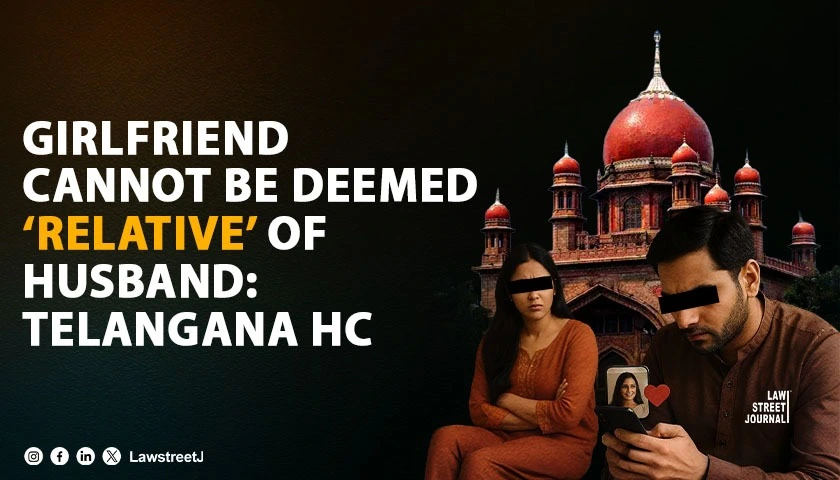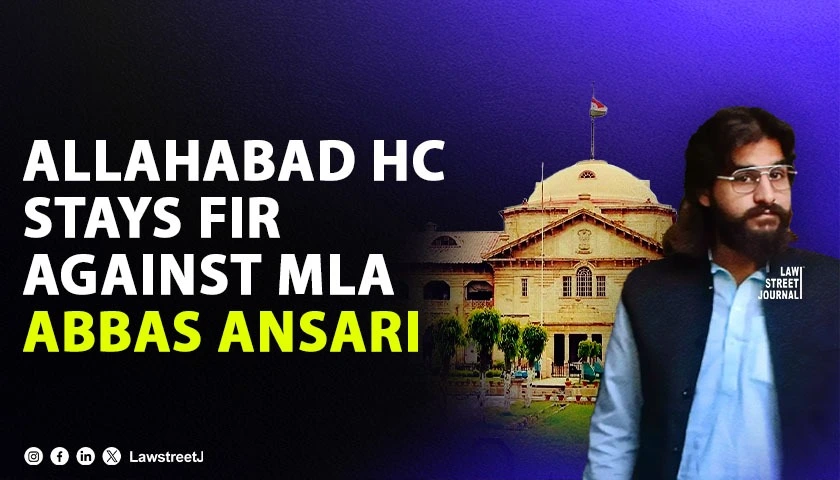Prayagraj: The Allahabad High Court (Lucknow Bench) recently held that State authorities had fallen over and scrambled to gain credit for acting on a false First Information Report alleging religious conversion, when no such conversion had occurred and the alleged victim had categorically denied the accusations.
The Division Bench of Justice Abdul Moin and Justice Babita Rani observed that despite the victim’s unequivocal statement clearing the accused of all charges, the investigating authorities failed to take corrective measures, resulting in the unlawful incarceration of an innocent person for over one-and-a-half months. The Bench remarked that this case was a glaring example of State authorities competing to score brownie points on the basis of a frivolous FIR lacking both factual basis and legal foundation.
The Court emphasized that such vexatious prosecution amounts to abuse of the process of law and violates the fundamental right to personal liberty under Article 21 of the Constitution. It further held that where investigating authorities ignore exculpatory evidence and fail to exercise statutory powers to rectify wrongful prosecution, the High Court is not only empowered but obligated to intervene to prevent miscarriage of justice.
The Bench noted that from the victim’s statement dated September 19, 2025, it was evident that she had gone of her own accord to her daughter in Delhi and subsequently returned, making it clear that the offence under Section 140 of the Bharatiya Nyaya Sanhita (BNS) was not made out. The Court further observed that the offences under Sections 316(2) and 317(2) BNS pertain to criminal breach of trust and stolen property, carrying maximum punishments of five and three years respectively. For such offences, the Court held, automatic arrest is impermissible in view of the law laid down by the Supreme Court in Arnesh Kumar v. State of Bihar and Satender Kumar Antil v. CBI.
The Court reiterated that in cases where an accused seeks quashing of an FIR on the ground that proceedings are manifestly frivolous or instituted with an ulterior motive, courts are duty-bound to examine the surrounding circumstances and, if necessary, read between the lines. Referring to settled law, the Bench affirmed that courts are not barred from considering material produced by the accused if such material is of sterling and impeccable quality and would persuade a reasonable person to reject the allegations as false.
Specifically, the Court held that as the victim categorically denied any religious conversion activity, the provisions of the Uttar Pradesh Prohibition of Unlawful Conversion of Religion Act, 2021 were clearly not attracted. It expressed its inability to understand why corrective action was not taken by authorities despite the victim’s categorical denial on record.
The Court observed that a false FIR had been lodged by respondent no. 4 under the 2021 Act without any offence being committed, as confirmed by the victim herself. Action under Section 189 of the Bharatiya Nagarik Suraksha Sanhita (BNSS) ought to have been taken against the complainant, and the petitioner should have been released. However, petitioner no. 1 continued to languish in jail even at the time of dictation of the order.
Relying on the Supreme Court judgment in Rajendra Bihari Lal v. State of U.P., the Bench held that where the High Court finds abuse of the legal process, it is duty-bound to exercise inherent powers to secure the ends of justice. Applying this principle, the Court concluded that the FIR had been lodged vexatiously and quashed the FIR along with all consequential proceedings under Article 226 of the Constitution.
On the question of costs, the Bench referred to Rini Johar v. State of Madhya Pradesh, where the Supreme Court awarded compensation for illegal arrest, noting that dignity is intrinsic to personal liberty and unlawful detention causes deep anguish and emotional distress. Considering that petitioner no. 1 was arrested on September 18, 2025, and remained in custody despite the victim’s exculpatory statement recorded a day later, the Court imposed exemplary costs of ₹75,000 on the State — directing ₹50,000 to be paid to petitioner no. 1 within four weeks, and ₹25,000 to be deposited with the Court’s Legal Aid Services. The Court also permitted the State to proceed departmentally against erring officials, including respondent no. 4.
Accordingly, the writ petition was allowed with costs. The FIR dated September 13, 2025, was quashed, and petitioner no. 1 was directed to be released forthwith if not wanted in any other case.
Case Title: Umed @ Ubaid Kha & Ors. v. State of U.P. Thru Secy. Home Lko. & Ors.
Case Number: Criminal Misc. Writ Petition No. 9068 of 2025
Date of Order: 30.10.2025
For the Petitioners: Adv. Sheikh Mohammad Ali
For the Respondents: Government Advocate; Adv. Pawan Kumar Mishra; Adv. Ramesh Gupta

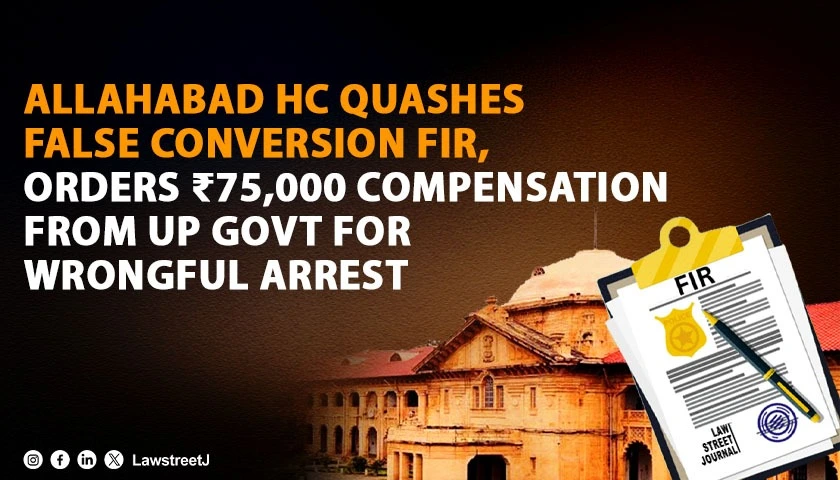

!["No Loudspeakers For Azan, No Fundamental Right To Create Noise," Says Allahabad HC To Two Mosques [Read Judgment]](/secure/uploads/2020/01/lj_4995_Allahabad_HC_AZAN.jpg)
